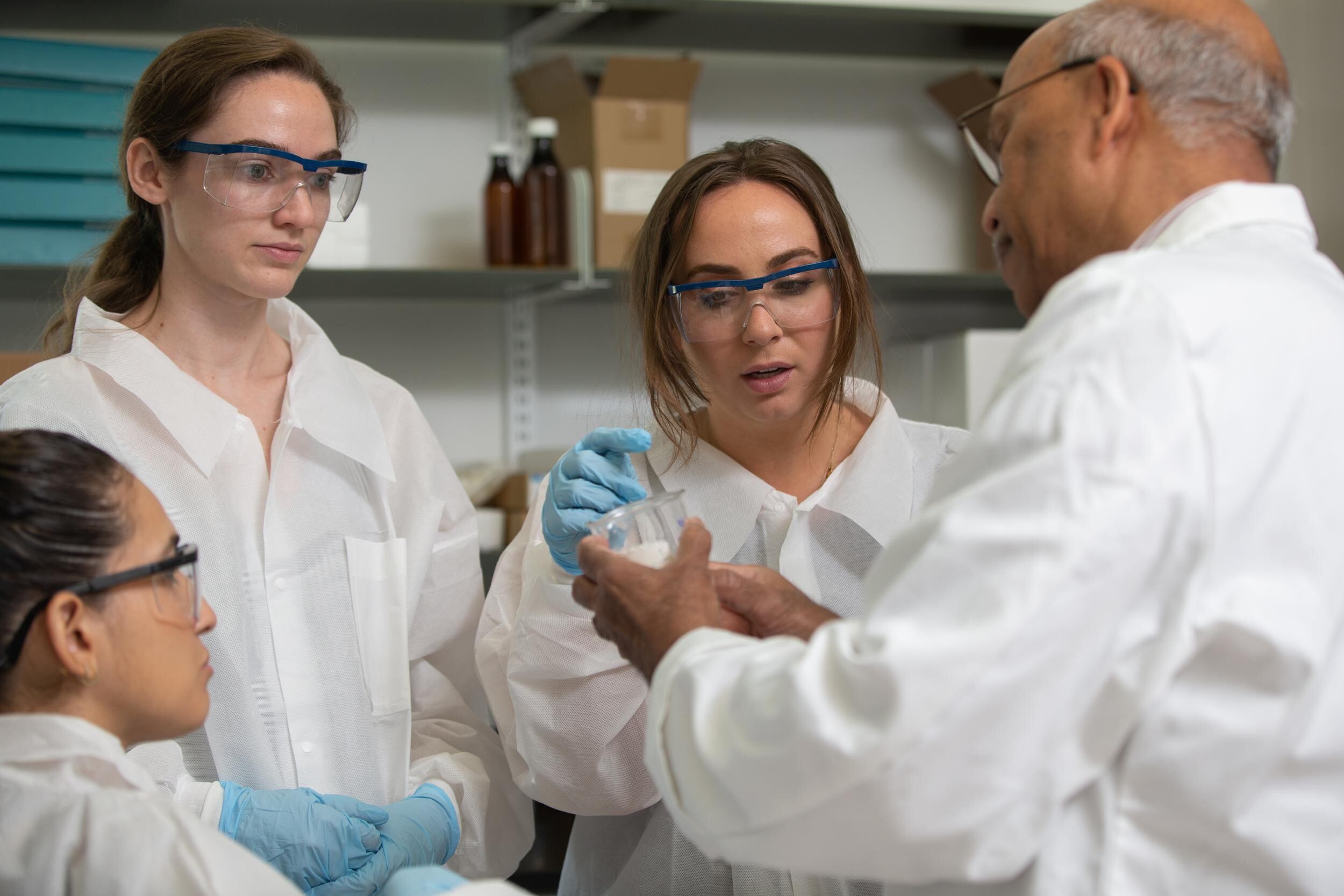Last month, the University of Cincinnati, in partnership with the Personal Care Products Council, announced that the university is launching a graduate certificate program for the hygienic manufacturing of cosmetic products this fall. The program has been created in response to the industry’s need for better education to reduce contamination of cosmetic products that use natural preservatives.
As natural ingredients become more prevalent in personal beauty care product formulations, some natural preservatives are not strong enough to withstand current large-scale manufacturing processes. As a result, contamination can occur, which leads to product spoilage, waste, and financial losses to the manufacturer.
To learn more about the University of Cincinnati’s partnership with the PCPC to develop the newly established graduate certification program, the program’s potential impact on the cosmetic and personal care product manufacturing and supply industries, the ways the program addresses some of the most significant challenges currently facing these industries, and who is best suited to benefit from completing the graduate certificate program, CosmeticsDesign interviewed K.P. Ananth, Ph.D., professor and director of the University of Cincinnati’s Cosmetic Science program at the James L. Winkle College of Pharmacy for his insights.
CDU: What potential impact will the new program launch have on manufacturers and suppliers in the cosmetics and personal beauty care product industries?
Dr. K.P. Ananth (KPA, Ph.D.): The new program is designed to train “plant hygienists” who can help address microbial contamination issues during the manufacturing stage. PCPC, an umbrella organization of major cosmetic manufacturers such as P & G, Unilever, J & J, and so on, has reported that the recent increases in the incidence of rejection of plant-produced cosmetic products are mainly due to their microbial contamination during manufacturing.
One of the factors that has led to this situation is the use of natural preservatives/preservative-free formulations that are generally less efficacious than conventional chemical preservatives. This may happen even with formulations that have been shown to be stable against microbial contamination in lab-produced samples.
This is because conventional preservatives are strong enough to withstand the conditions of the manufacturing stage. In contrast, natural preservatives, which are less efficacious, are not robust enough to withstand manufacturing conditions.
Another factor, according to PCPC, that has contributed to this problem is the lack of trained professionals who can adequately address the plant issues. Plant engineers and formulators rarely speak the same language, which has been a factor in this issue.
PCPC approached us about eighteen months ago to create a training program to help formulators and engineers promptly address these problems. Working jointly with PCPC, we have developed this new graduate certificate program on hygienic manufacturing.
Manufacturers and suppliers to the cosmetic industry will benefit from this program by having trained professionals who can address potential plant hygiene issues that can lead to product contamination. Note that when product contamination occurs, the loss is not just from the contaminated product but also the cost involved in the clean-up, downtime, and, most importantly, the brand’s credibility.
Having trained professionals who can address hygienic issues before they become major problems during the manufacturing stage will ensure consumer product safety.
CDU: What are some of the most significant challenges facing manufacturers and suppliers of the cosmetics and personal care product industries today?
KPA, Ph.D.: Cosmetics and personal care companies are trying to meet the consumer demand for greener and sustainable products with more natural ingredients in them. In response, both the supplier companies and the personal care R&D teams are exploring novel solutions with natural ingredients.
This trend includes the use of natural preservatives or even preservative-free formulations. These efforts also often result in stable formulations without any microbial contamination in lab-produced samples.
However, these are often done without considering the factory’s hygienic conditions. Factory systems are set up to handle the conventional ingredients safely, and changes to them, specifically the preservative systems, may have implications for the overall product stability and safety.
Factories seem to be less forgiving when it comes to the use of natural or less efficacious preservatives. It is important that the whole system is examined in a holistic way to avoid any potential contamination issues during the manufacturing stage.
PCPC has identified several solutions to address these problems, and one of them is having trained plant hygienists who have the basic formulation knowledge as well as plant hygiene challenges so that potential problems can be avoided well before they surface.
CDU: How does the newly launched program address these challenges and offer solutions to these issues?
KPA, Ph.D.: The Graduate Certificate (G.C.) program in hygienic manufacturing is designed to provide basic knowledge of formulation science, skincare, and haircare science, product microbiology, plant engineering and hygienic issues involved during the manufacturing stage. This will produce trained experts who can work with the plant engineers and formulation chemists to holistically manage the the transition from conventional to natural actives and preservative systems.
The consumer trend of naturals and free of conventional chemical preservative systems are here to stay, and therefore addressing potential problems and implementing solutions that will prevent microbial contamination is a winning strategy for the companies. The training this G.C. will provide is the first step towards such a winning strategy.
CDU: How is the program structured, and in what ways is it applicable to real-world industry experience upon graduation?
KPA, Ph.D.: The G.C. in hygienic manufacturing consists of five courses adding up to thirteen credits. These courses cover basic cosmetic and personal care formulation science, cosmetic microbiology, plant hygiene, and plant engineering.
In principle, working full-time and studying part-time these can be covered over one year. Admissions requirements include a B.S. degree in a field of science such as chemistry, biology, chemical engineering, or similar fields with a GPA of 3.0 or higher.
It is possible for someone completing the G.C. to transition into our full M.S. degree program in cosmetic science. It is also possible for someone to take the two courses covering plant engineering and plant hygiene without going through the full G.C. program, provided they meet other requirements for admission.
All our courses are online and asynchronous, so they can be accessed from anywhere in the world. Students can take these courses at their convenience while working full-time. Importantly, all our courses are taught by experts with significant industrial experience and academic expertise.
The two new courses on plant engineering and plant microbiology are developed by experts from PCPC with real-world experience. This is what makes our G.C. unique and relevant to the real world.
CDU: Who is best suited to attend this program and reap the most significant benefits from this supplementary educational opportunity?
KPA, Ph.D.: This will benefit R&D chemists and microbiologists who want to get more familiar with plant issues. Also, plant engineers, including process and chemical engineers who want to learn more about the formulation science so that they can understand the systems they are trying to scale up the production will benefit from these courses.
In addition, entrepreneurs including dermatologists, doctors, and chemists who want to start their own skin/personal care line will benefit from the program.
The latest trend shows that several such entrepreneurs are entering the field to create their own product lines with minimal understanding of product preservation approaches and manufacturing issues. They will indeed benefit from this G.C. and from our entire cosmetic science M.S. degree program.
Fresh BS graduates with chemical engineering or chemistry who wish to enter the scale-up and manufacturing of cosmetic formulations will also benefit from this program. Since manufacturing is a worldwide issue for global personal care companies, they may benefit from encouraging their counterparts/sister organizations in other countries to join this program to strengthen their hygienic manufacturing capabilities.
CDU: What are some common misconceptions regarding product formulation with natural preservatives, and how does the newly launched program address these misconceptions with industry professionals?
KPA, Ph.D.: The consumer-driven move towards natural and greener ingredients is real and is here to stay. Companiesare taking on this challenge and trying to go through a conversion process.
Unfortunately, this cannot be done overnight without a holistic approach to understanding all the issues and challenges involved. Some of the realities include the following: (a) natural does not mean it is always safe, (b) natural ingredients may not have the same efficacy as their synthetic counterparts always, and this is especially so for preservatives, (c) products do require some degree preservation against microbial growth and (d) naturals also need to be tested for safety and stability.
The newly launched program will help develop experts who can address these issues systematically and holistically by including the manufacturing concerns and problems in their product development and design. This will also help improve the communication between plant engineers and the R & D chemists to review potential issues well before they become major problems.
It is equally important for organizations to be transparent with consumers by educating them about the issues involved in moving to natural alternatives and the steps they are taking to move towards greener and natural ingredients for their products.
CDU: Anything else to add?
KPA, Ph.D.: One can get more information about our new G.C. in hygienic manufacturing of cosmetic products from our website: https://online.uc.edu/certificates/hygienic-manufacturing-of-cosmetic-products-graduate-certificate/.
We do have year-round admissions for our programs.
Info about our M.S. degree program can be obtained from our website: https://online.uc.edu/masters-programs/ms-in-cosmetic-science/admissions/.
You can also get more info by e-mailing Dr. K.P. Ananth at ananthky@uc.edu.




